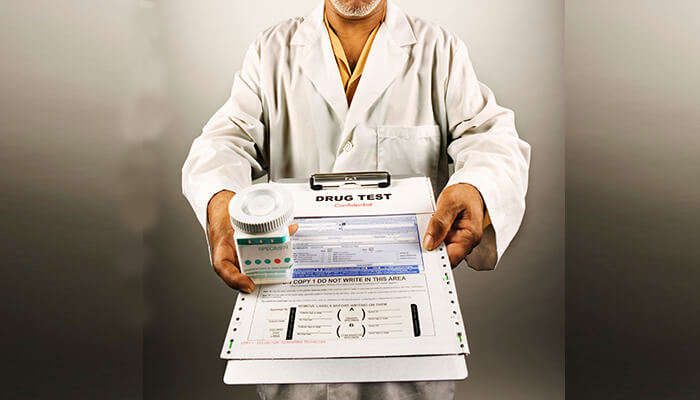Introduction
Employers may have different policies regarding drug testing for employment. However, they must adhere to legal guidelines to avoid violating an individual’s rights. Federal and state laws and privacy and anti-discrimination regulations determine employers’ limitations on drug testing. These limitations include the type of testing permitted, when it can be conducted, and the consequences for a positive result.
Drug screening for employment is a common practice. Employers use it to assess a job candidate’s suitability for a particular position. In addition, employers must also ensure that they provide a safe working environment for employees while respecting their privacy and rights.
Purpose of Drug Testing for Employment
Employers perform it to ensure prospective employees are fit for work and free from drugs that could affect their job performance. employer aims to protect the company’s reputation, maintain a safe working environment, and reduce the risk of accidents and injuries in the workplace. Additionally, some employers may be required to perform testing to comply with federal regulations or contractual obligations.
Limits Employers Face While Performing Drug Testing for Employment
Fourth Amendment and Privacy Rights of Drug Testing
The Fourth Amendment protects citizens from unreasonable searches and seizures by employers. The Fourth Amendment applies to testing because it involves a search of an individual’s bodily fluids, which is considered a violation of privacy. As a result, employers must follow certain guidelines and procedures when conducting drug testing for employment to ensure that they do not violate employees’ constitutional rights.
Overview of the Fourth Amendment and Its Application
This employment situation triggers the application of the Fourth Amendment because it involves searching an individual’s bodily fluids, an action considered a search. However, the Fourth Amendment does not prohibit all searches; it only prohibits unreasonable searches. Employers must have legitimate reasons for conducting drug tests and minimize intrusion on employees’ privacy to ensure the tests are considered reasonable.
Privacy Rights and How They Limit Employer
Privacy laws limit employers’ ability to conduct this testing for employment. Employers must obtain consent from prospective employees before conducting drug testing. They must provide information about the procedure, including what drugs they will test for and how they will be conducted. Employers must keep test results confidential and share them with those who have a legitimate need to know.
State Laws and Regulations of Drug Testing
State Laws Regarding Drug Testing for Employment
Many states have laws that regulate it for employment. These laws vary by state but require employers to follow specific guidelines when drug testing. For example, some states require employers to provide written notice to employees before testing, while others require a licensed laboratory to conduct the tests.
How State Laws May Limit Drug Testing by Employers
State laws may limit employers’ ability to conduct it for employment in several ways. For example, some states prohibit to do for certain jobs, such as those that do not involve safety-sensitive duties. Additionally, some states require employers to have a legitimate reason for conducting drug testing, such as reasonable suspicion of drug use, before they can test employees.
Discrimination Laws
Discrimination Laws and Their Application to Drug Testing
Employers must be careful not to discriminate against employees or prospective employees when conducting employment. Discrimination laws prohibit employers from using drugs to discriminate against individuals based on race, gender, age, or other protected characteristics. Additionally, employers must ensure that drug testing policies are applied uniformly to all employees and prospective employees.
How Drug Testing Might Cause Prejudice and Restrict Employers
Drug testing for employment may result in prejudice against certain individuals, such as those who use medical marijuana or those who take prescription drugs. Employers must be careful not to discriminate against these individuals or restrict their employment opportunities based on their medical conditions or drug use. Additionally, drug testing policies must be applied uniformly to all employees and prospective employees to avoid discrimination claims.
Medical and Recreational Marijuana
Legal Status of Medical and Recreational Marijuana
Legalizing medical and recreational marijuana has raised questions about the legality of the testing for employment. While marijuana is still illegal under federal law, many states have legalized it for medical and recreational use. This creates a legal gray area for employers, who may be unsure whether they can legally test employees for marijuana use.
How Marijuana Legalization May Limit Employer Drug Testing
Marijuana legalization may limit employers’ ability to conduct this testing for employment in states where it is legal. Some states have enacted laws prohibiting employers from discriminating against employees or prospective employees based on their use of medical marijuana. Additionally, some states require employers to provide accommodations to employees who use medical marijuana, such as allowing them to use it during work hours.
Prescription Drugs
Drugs Prescription and Their Potential Impact on Drug Testing
Prescription drugs can also pose challenges for employers conducting drug testing for employment. Many prescription drugs can produce positive results on drug tests, even if the employee is not using illegal drugs. In addition, employers must be careful not to penalize employees for taking legally prescribed medications.
How Employers May Be Restricted From Doing Prescription Drug Testing
Privacy and discrimination laws may limit employers in prescribing drug testing. Some states prohibit employers from testing employees for prescription drugs unless there is a legitimate reason, such as safety concerns. Additionally, employers may be required to accommodate employees who take prescription drugs, such as allowing them to take breaks to take their medication.
The Effects of These Restrictions on Companies and Workers
The restrictions on drug testing for employment can positively and negatively affect companies and workers. On the one hand, it can help companies maintain a safe working environment and protect their reputation. On the other hand, overly restrictive drug testing policies can discourage qualified candidates from applying for jobs and create unnecessary expenses for employers.
Conclusion
Employers must be aware of their limitations when conducting this testing for employment, including privacy rights, state laws, discrimination laws, and the legal status of marijuana and prescription drugs. While doing testing can help companies maintain a safe working environment, it is crucial to balance the need for testing with employees’ rights and privacy concerns. By following proper guidelines and procedures, employers can ensure that they are conducting drug testing legally and ethically.



